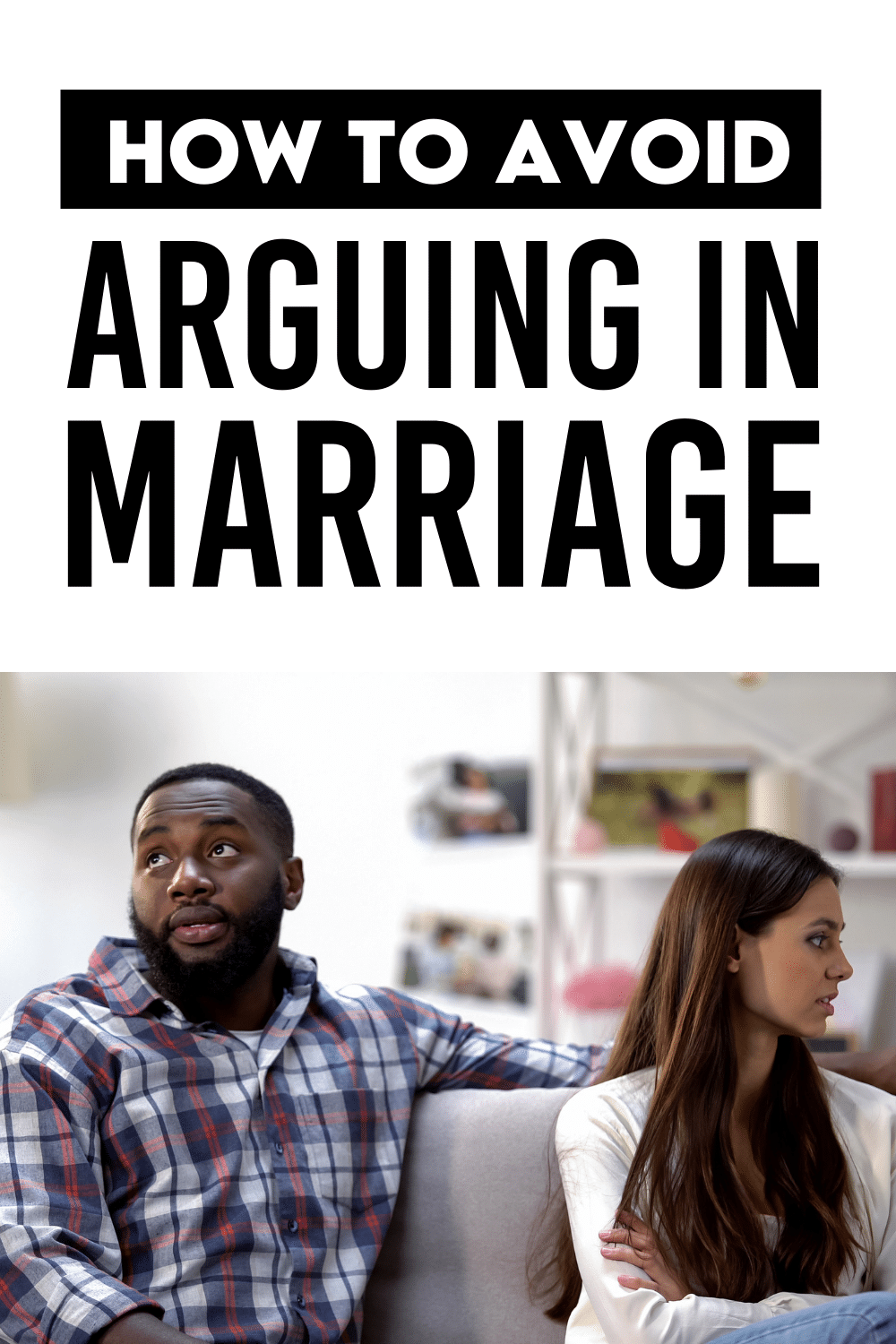A Fresh Perspective on arguing in marriage
Arguing in marriage is considered inevitable by many couples. Luckily, there is actually a lot of research on how to overcome unavoidable differences in a healthy way without giving in to destructive arguing patterns. Research shows that when disagreements are handled in a healthy and positive way, satisfaction, success, and longevity of intimate relationships increases in couples.
But even with ENDLESS tips and tools to assist in solving conflict patterns in marriage, couples can still feel helpless in the heat of the moment. So what is the secret to taming and overcoming escalated marital arguments?

Before we begin, there is no such thing as a perfect relationship. All couples have differences. Also, there will be moments in every relationship where conflict is mishandled. But by learning and practicing healthy disagreement strategies, your relationship will be MUCH better off than simply feeding into an unhealthy argument style because you know they’re common for couples. Commit today to wanting a healthier marriage and actively striving to find solutions for unnecessary arguments with your spouse.
why is there so much potential to argue in marriage?
In a blog post written by The Gottman Institute entitled “The #1 Thing Couples Fight About“, writer Kyle Benson breaks down research conducted by Dr. John Gottman in his recent book, The Science of Trust.
“Regrettable incidents like fights, arguments, and interactions that are primarily negative will happen in all relationships. However, according to our research, both partners in a relationship are emotionally available only 9% of the time. This leaves 91% of our relational interactions ripe for miscommunication.”
Essentially, when marriage blends together two different people with different aspirations, different upbringing experiences, different emotional baggage, and different personal strengths/weaknesses, there is bound to be a large contrast in the opinions they share throughout the relationship. At best, this results in lots of disagreements.
Additionally, on top of the vast differences that are brought into relationships, there are also large deficiencies in most couples’ conflict resolution habits. Aka: Most married couples are actually not very good at arguing. This creates the scenario often joked about among seasoned married couples, you’re either arguing about nothing or arguing about a previous argument.
Though comical to a couple well-versed in the ebb and flow of their relationship, this arguing could be concerning to a newer couple that feels frustrated by their sense of “incompatibility,” which can in turn fuel more negative behavior patterns during arguments (such as more adrenaline, more fight or flight responses, and more broad, dramatic remarks about the relationship itself that erode trust over time.)
Kyle Benson continues in his article,
“Typical conflicts are merely a reminder that a relationship is two different people working together to understand differences and love each other despite flaws. And the reason why all couples fight is that we’re all a bit different from each other—personalities, needs, likes, dislikes, preferences, life dreams—and many of those differences (69%, to be precise) cannot be resolved.“
Yes, you heard that right. Dr. John Gottman’s research concluded that 69% of arguments won’t ever be resolved in most relationships.
So what now?

reframing the negative connotation of arguing
Though there is nothing out of the ordinary about having disagreements in marriage, many couples associate the frequency of their arguments to how well they feel the relationship is going. This may be one of the greatest misconceptions about conflict in our relationships.
If all couples experience disagreements throughout their relationship, avoiding resolution and communication over said disagreements can actually be to their demise. It is required to talk out, discuss, and thoroughly work through disagreements to overcome them. Skipping over vulnerability in marriage simply because it is uncomfortable can be a dangerous relationship strategy for many reasons.
Gary W. Lewandowski Jr. PhD, a psychology professor at Monmouth University in New Jersey, shared a well-researched presentation entitled “Most Couples Need to Fight More, Not Less” via TedTalk in April 2021. He shed light on the negative long-term effects of avoiding conflict.
“While people felt better on the day they avoided an argument, the next day they had diminished psychological well-being and increased cortisol, which can lead to weight gain, mood swings, and trouble sleeping. Short-term gain, long-term pain.”
Right about now, you might be thinking, “So, avoiding arguing altogether is BAD, but 69% of our arguments are not solvable…what is the secret to winning here?!” Well, most of us have been there in that stuck spot asking the same questions.
Jeremy and Audrey Roloff, founders of Beating 50 Percent and co-hosts of the Behind the Scenes Podcast, shared a segment on conflict, saying:
“The idea isn’t to get rid of conflict, but to use it to strengthen your relationship.” – Episode 91
Healthy v.s. unhealthy conflict: using arguments to your advantage
Many couples tend to fear arguments with their partners because most are not equipped with the information to distinguish the difference between healthy and unhealthy conflict. In fact, not only do most couples struggle to recognize that there are two different types of argument patterns, so many marriages are also not adequately provided the training needed to achieve the healthy, productive, and constructive kind.
The Gottman Institute has done some of the most groundbreaking research on fighting and arguments in intimate relationships. One of the more popular conflict concepts from their extensive research is referred to as the four horsemen. This concept outlines the four most dangerous conflict styles that toxify marital arguments and send the relationship spiraling toward a not-so-happy ending.
- Criticism: verbally attacking personality or character
- Contempt: attacking sense of self with an intent to insult or abuse
- Defensiveness: victimizing yourself to ward off the perceived attack and reverse the blame
- Stonewalling: withdrawing to avoid conflict and convey disapproval, distance, and separation
If this list makes you feel discouraged, remember that ALL of us have been a part of one or all of these behaviors in arguments. The most important thing is that now YOU KNOW. And the best news? There is ALWAYS a healthy option for every unhealthy conflict pattern. It’s up to you to learn it and practice it.
We know marriage will involve arguments. We know a very large portion of those arguments will not necessarily be resolvable, and now we know that HOW we fight determines what outcome is achieved. Let’s break down these four negative styles of arguing with some examples and positive anecdotes!
1. Criticism v.s. gentle startup
While criticism in an argument attacks your partner’s personality traits or character, formulating a gentle startup response instead starts with asking yourself: What do I feel? And what do I need?
Criticism: ‘You always talk about yourself. Why are you always so selfish?‘
Antidote: ‘I’m feeling left out of our talk tonight, and I need to vent. Can we please talk about my day?’
– Example by: Ellie Lisitsa, author of The Four Horseman: The Anecdotes
2. contempt v.s. building a culture of appreciation
Contempt: ‘You forgot to load the dishwasher again? Ugh. You are so incredibly lazy.’ {Rolls eyes}
Antidote: ‘I understand that you’ve been busy lately, but could you please remember to load the dishwasher when I work late? I’d appreciate it.’
– Example by: Ellie Lisitsa, author of The Four Horseman: The Anecdotes
3. defensiveness v.s. accepting responsibility
Defensiveness: ‘It’s not my fault that we’re going to be late. It’s your fault since you always get dressed at the last second.’
Antidote: ‘I don’t like being late, but you’re right. We don’t always have to leave so early. I can be a little more flexible.’
– Example by: Ellie Lisitsa, author of The Four Horseman: The Anecdotes
4. stonewalling v.s. physiological self-soothing
Stonewalling: ‘Look, we’ve been through this over and over again. I’m tired of reminding you—’
Antidote: ‘Honey, I’m sorry to interrupt you, but I’m feeling overwhelmed, and I need to take a break. Can you give me twenty minutes, and then we can talk?’
– Example by: Ellie Lisitsa, author of The Four Horseman: The Anecdotes

What is the secret to winning with marital arguments?
“The biggest unconscious mistake couples make is failing to take emotional responsibility for their feelings … We think others are ‘making’ us feel the way we are – and fail to see our role in our own emotions. That’s why when we discuss our concerns with our loved one we are so often filled with blame and provoke defensiveness.” – Joseph Grenny, co-author of the New York Times bestseller Crucial Conversations.
This may be the most important piece of information we share today. All the advice in the world will never solve any pain points we experience in our relationships unless WE choose to do something.
We truly underestimate the power we hold in our marriage when we focus on parts out of our control. And yes, the item on the top of that “out of our control” list is {drum roll, please} our spouses. YOU and only you are responsible for heeding this advice and doing something about it, because ultimately, you are reading this post.
Here’s to avoiding arguments in marriage and feeling more secure in your relationship because of it!




“The idea isn’t to get rid of conflict, but to use it to strengthen your relationship.” LOVE that so much!! Great insights!